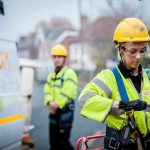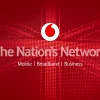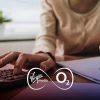Excessive UK ISP Internet Filters Block Access to Vital Support Sites
A new study has examined the impact of network-level filtering (Parental Controls) from the largest UK broadband ISPs, which are enabled-by-default and help to protect children from seeing “adult” content. Unfortunately they’ve also blocked access to many safe sites too, including charities, school and social support services.
Currently all of the markets largest broadband ISPs (BT, Sky Broadband, Virgin Media, TalkTalk etc.) are required, as part of a semi-voluntary agreement with the Government, to adopt network-level filtering through a system called Active Choice Plus. The intention is to prevent children from seeing unsavoury online content and customers may also be given options to filter by age, time and across various different content categories.
The system can optionally be disabled, although this may soon become a moot point as the Government are increasingly moving toward a culture of censorship by default (e.g. the Online Harms White Paper and Age Verification for Porn Sites plan).
Advertisement
Due to all this it’s becoming vitally important to remind people of just how dangerous it can be, to freedom of speech and access to vital information, when you entrust such tools to dumb automation by commercial companies, which will always err on the side of overblocking in order to protect themselves from liability.
In this case the Open Rights Group and Top10VPN conducted an analysis of 35 million unique domains to see which seemingly legitimate and safe sites may have been wrongfully caught by such filters. The study found that 760,000 websites have been blocked in the last 2 years alone, albeit with lots of small businesses and charities being unwittingly caught in the crossfire.
Number of safe sites blocked in different categories since 2017
| Sites relating to these keywords | Total blocked domains identified through search | Total domains still blocked | Total number of ISPs that are blocking a domain |
| Addiction, substance abuse support sites | 35 | 14 | 48 |
| Charities and non-profit organisations | 91 | 17 | 24 |
| Counselling, support, and mental health | 104 | 70 | 177 |
| Domestic violence and sexual abuse support | 7 | 7 | 25 |
| LGBTQ+ sites | 27 | 7 | 25 |
| School websites | 143 | 13 | 28 |
A lot of the aforementioned sites include those that provide support for overcoming issues such as drug and alcohol addiction, mental health support, as well as sexual and domestic abuse. The study also found that only a little over 1,300 blocks had been reversed in the last 2 years, which is just a small fraction of incorrectly blocked sites.
Advertisement
Similarly the study noted that 27.6% of unblock requests to ISPs from 2018 are still unresolved today, with TalkTalk and Virgin Media being the worst offenders.
Jim Killock, ORG Executive Director, said:
“Filters are fundamentally bad products, that block too much and too little. Our report shows that website publishers are suffering the consequences. The only decent solution is to be very cautious about using filters. People should only use them if they are clear that they are necessary. Unfortunately, many filters are opt-out, so too many people and homes are using them needlessly.
ISPs are using out-of-the-box solutions from third parties and so tend to pass the buck on queries about filtering. What we need is greater transparency into how ISPs are blocking sites. It should not be down to the volunteer efforts of donation-driven services such as Blocked.org.uk to deal with the problems that this government policy has created.”
Many sites end up being incorrectly blocked because of simple context confusion over similar keywords. For example, a website that promotes drug use and self-harm may share many of the same words and context as those that do the exact opposite and try to help people with such problems.
Over 400 UK charities, social support and school websites were found to have been caught by these filters in the past two years alone, while at least 120 sites are still affected, thus depriving these largely third sector entities from carrying out their mission.
Likewise in the past we’ve even seen online shops that coincidentally sold antique tobacco pipes or beer glasses being blocked for a similar reason. Even Drainage companies have been caught up in ISP filters for using terms like “unblock“, possibly under the just plain dumb assumption that they are censoring web-based anonymisers and proxy server services (used to easily circumvent such blocks).
Advertisement
Just to make matters worse it’s not always immediately clear to those who run the websites that an ISP is blocking them and often the first you’ll learn of it is when a reader points the problem out, which may come a long time after the problem first hit. Trying to get the site unblocked, as suggested earlier, can then become very hit-and-miss.
We can only imagine how bad this could get once the Government starts targeting even more ambiguous speech by the same back-door style approach to mass censorship via third-parties.
Mark is a professional technology writer, IT consultant and computer engineer from Dorset (England), he also founded ISPreview in 1999 and enjoys analysing the latest telecoms and broadband developments. Find me on X (Twitter), Mastodon, Facebook, BlueSky, Threads.net and Linkedin.
« Three UK Add New Benefits for Small Business 4G Mobile SIMs
Vodafone Harness Disused BT Phone Boxes to Boost UK 4G Cover »

















































Comments are closed